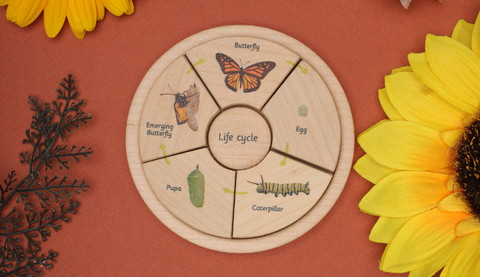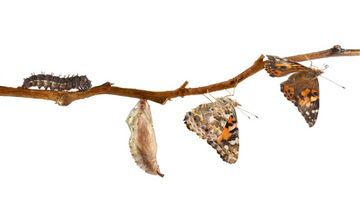In Montessori classrooms, children are introduced to the world through their senses. When they study geography, botany, zoology or history, they are learning about items of human culture. These studies help them classify and understand their world better.
Culture activities are an important part of Montessori education as they connect children to nature and the world around them. Through exploration and hands-on activities, children can make sense of the world they live in. Dr. Montessori believed in the importance of bringing nature into education, and Montessori classrooms often have beautiful plants, thriving gardens, and even classroom pets or trips to the nearby park to connect children with wildlife.
Observing nature can be a fascinating experience for children, as it helps them unlock the wonders of life and growth. When children learn to take care of plants and animals, they develop a sense of understanding and empathy. This process is called auto-education by Dr Montessori, where children learn to do things because it is the right thing to do and not for rewards or incentives.
Through this process, children learn patience and self-discipline, which are essential virtues in life. The feeling of satisfaction and accomplishment on the day when their seeds start sprouting or the cat gives birth to kittens is priceless. It is almost as if nature is rewarding the children for their little efforts.
Moreover, when children learn about real animals, plant life, and their names, their language skills and vocabulary expand. This not only helps them communicate better but also enables them to appreciate the beauty of nature and the environment around them.
Introducing lifecycles of plants and animals is a wonderful part of the culture activities in Montessori. It would be wonderful for a child to observe a caterpillar wrapping a cocoon around itself and coming out as a butterfly!
Along with real life experiences, offering nomenclature cards (with pictures and names of the stages of the lifecycle) as well as puzzles like Ariro’s Lifecycle puzzles offer not only means for language and fine motor skills development, but also help answer the child’s questions about birth and death! 
These are topics that can be discussed with children in a factual, accurate, and age-appropriate way. It's important that we tell our children the truth about how life reproduces and ends, and one way to do this is by using life cycle puzzles that are simple and easy to understand.
When discussing the human life cycle with children, it's important to be open to questions and use accurate terms for reproductive body parts, without any biases or judgement. This helps children develop a better understanding of nature and appreciate the abundance of gifts it provides.
As children grow, they become more connected to nature and start to wonder how mankind has developed over time. As adults, we must also strive to develop curiosity and humility towards nature, including plants, animals, and the environment. By doing so, we can truly appreciate what we can offer to our children.
“The land is where our roots are. The children must be taught to feel and live in harmony with the earth,”
-Dr Maria Montessori






